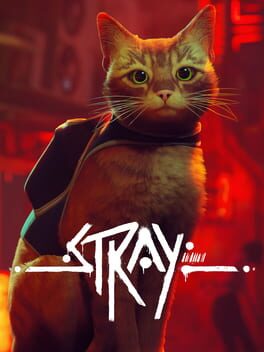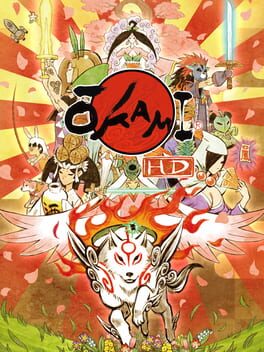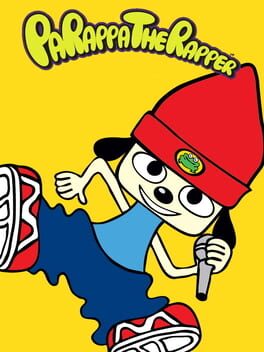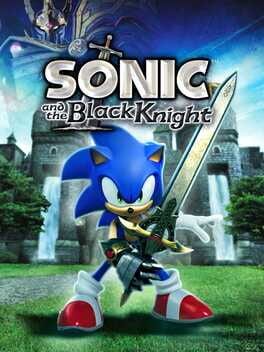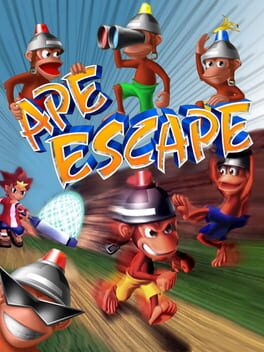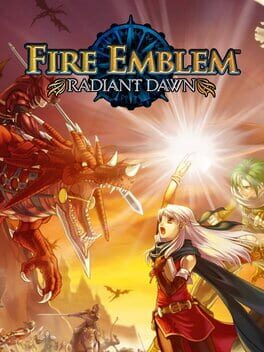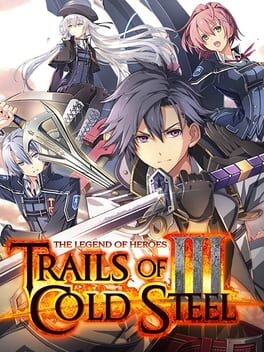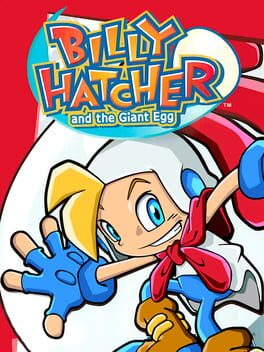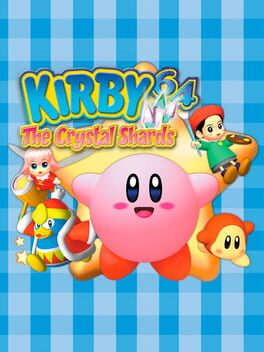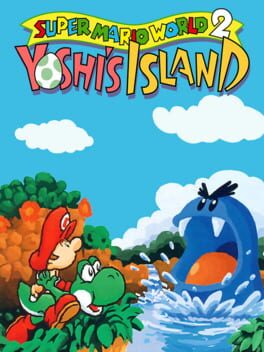Gana
1997
2022
2018
Peak of the genre.
There are so many things I like about this game. I'll try my best to list them all succinctly, but it'll be a challenge.
The main gameplay loop is done super well. You typically start off in the house, and get a chance to talk with a bunch of lovable characters about various things, sometimes related to things you've done recently. You then prepare for and then do your next run, which greatly varies based on which weapon you pick, which boons you choose, etc, to keep things fresh. I had to actively limit how many runs of this I do per day, cause quite frankly the game is addictive.
I love how with every run, no matter how small, you always get SOMETHING. There's no way to have a pointless run outside of maybe dying in the first chamber, and even then, when you get back everyone will have new dialogue. Throughout all my runs, there was never a point where I was anywhere close to running out of dialogue, albeit I'm writing this as of finishing the main story, not 100%ing the game. There are also multiple sidequests that you can do involving the NPCs, which is just another fun thing to keep track of even if you aren't doing especially well with the whole main story thing.
The game's Dark Thirst mechanic is also quite good at encouraging variety in what weapons you use.
The core gameplay is excellent. No matter what weapon or build I end up using, I always feel like combat is exciting and fast-paced.
This game is nearly perfect and I cannot wait for Hades 2.
There are so many things I like about this game. I'll try my best to list them all succinctly, but it'll be a challenge.
The main gameplay loop is done super well. You typically start off in the house, and get a chance to talk with a bunch of lovable characters about various things, sometimes related to things you've done recently. You then prepare for and then do your next run, which greatly varies based on which weapon you pick, which boons you choose, etc, to keep things fresh. I had to actively limit how many runs of this I do per day, cause quite frankly the game is addictive.
I love how with every run, no matter how small, you always get SOMETHING. There's no way to have a pointless run outside of maybe dying in the first chamber, and even then, when you get back everyone will have new dialogue. Throughout all my runs, there was never a point where I was anywhere close to running out of dialogue, albeit I'm writing this as of finishing the main story, not 100%ing the game. There are also multiple sidequests that you can do involving the NPCs, which is just another fun thing to keep track of even if you aren't doing especially well with the whole main story thing.
The game's Dark Thirst mechanic is also quite good at encouraging variety in what weapons you use.
The core gameplay is excellent. No matter what weapon or build I end up using, I always feel like combat is exciting and fast-paced.
This game is nearly perfect and I cannot wait for Hades 2.
2012
1996
1999
2021
I mean it's fun enough but I don't think I'd consider this anything close to a Metroidvania. It feels like I can't go more than 10 minutes without having something get sealed off behind me. I never got lost, but I never felt like I was given a chance to navigate either. Also the EMMIs often felt more annoying than scary, which took away from the appeal of having a common enemy to be scared of.
2018
Very ambitious game, I'll give it that much. I like the rotating armies idea both narratively (mostly) and in game play, and I think the amount of challenge this game offers is also mostly enjoyable, but it is pretty aggravating for some missions, especially the long ones if you lose a main character.
Writing-wise, I feel like we're always just a little bit short of being good. There are some fun ideas in just about every arc, but I never really feel like enough is done with them. It doesn't help that the rotating PoVs does make it difficult to really develop characters or plot points.
The most glaring issue with this game is the complete removal of the support system, and it's the primary reason why I'm dropping it. Supports are the main way to have any character writing whatsoever, and removing them entirely makes many units (especially new ones) feel like piles of stats more than people. I think it also throws off the pacing, not having any non-plot scenes between chapters.
Overall I think the game is fine but it's not good enough for me to really want to play it more than something else.
Writing-wise, I feel like we're always just a little bit short of being good. There are some fun ideas in just about every arc, but I never really feel like enough is done with them. It doesn't help that the rotating PoVs does make it difficult to really develop characters or plot points.
The most glaring issue with this game is the complete removal of the support system, and it's the primary reason why I'm dropping it. Supports are the main way to have any character writing whatsoever, and removing them entirely makes many units (especially new ones) feel like piles of stats more than people. I think it also throws off the pacing, not having any non-plot scenes between chapters.
Overall I think the game is fine but it's not good enough for me to really want to play it more than something else.
This review contains spoilers
The kiseki series is very unique in that all of its games have direct continuity. 8 games in, CS3 is the first game that really takes advantage of this in terms of regularly calling back on previous arcs.
I'd say all of CS3's best moments come directly from it taking advantage of the legwork of older games. Chapter 2's entire Crossbell segment comes to mind first as the peak of the game, as does Chapter 1's ending in Hamel, the appearances of several old party members such as Randy, Tita, Olivier, and so on. I could see some getting upset at the game's peaks all being built atop games that were written over a decade ago, but given the uniqueness of the series, I'm willing to let it slide.
CS3 also does plenty of its own work. It returns back to Zero's style of favoring smaller parties and only occasionally introducing guests, which does wonders for the characterization of New Class VII. I like every party member in NC7 more than most of CS1 and 2's main cast. Special mentions go to Juna for managing to be an incredibly likeable and interesting character in a series where the party members often have secret identities, tragic backstories, and/or preexisting connections with major NPCs.
One interesting thing is that CS3 doesn't really have much of a plot. In terms of accomplishing a goal or causing change, basically nothing happens before late Chapter 4. I will admit that the lack of agency bothers me sometimes, but overall they still manage to make the game interesting through worldbuilding, political intrigue, and the character interactions, which is impressive.
The game's combat is also probably my favorite in the series so far. Now, there's a big asterisk on that statement, because I played on Nightmare. If you go any easier than that the game collapses in on itself with how many different ways you can snap the combat in half. However, if you play on Nightmare, it feels like the combat was designed with that in mind. The broken strats are the only way to survive, and you will not achieve them quite as easily as you might hope. Even in the endgame where I have amazing equipment, quartz, and all party members, I'm still sometimes struggling to stay afloat in the boss fights. The combat is almost always engaging and fun, which is honestly a rarity in this series. I feel saddened that Steam's achievement stats told me that less than 10% of players got to experience this game's combat at its best.
My only real issue with this game is the fanservice. It is fucking ridiculous, especially at the start. The game rapidly alternates between having incredibly cool moments and having shit that makes me want to turn the game off. Most glaring examples are the actual rape scene between Shirley in Duvalie in chapter 1, and the entire existence of Musse. Personally if I were writing a game where the protagonist was a teacher and had multiple party members as his students, I'd have veered away from the romance aspects, but I suppose Falcom had other ideas and wanted to make sure everyone knew it. Everything else is great. The rampant fanservice is the only reason this isn't a 10.
I'd say all of CS3's best moments come directly from it taking advantage of the legwork of older games. Chapter 2's entire Crossbell segment comes to mind first as the peak of the game, as does Chapter 1's ending in Hamel, the appearances of several old party members such as Randy, Tita, Olivier, and so on. I could see some getting upset at the game's peaks all being built atop games that were written over a decade ago, but given the uniqueness of the series, I'm willing to let it slide.
CS3 also does plenty of its own work. It returns back to Zero's style of favoring smaller parties and only occasionally introducing guests, which does wonders for the characterization of New Class VII. I like every party member in NC7 more than most of CS1 and 2's main cast. Special mentions go to Juna for managing to be an incredibly likeable and interesting character in a series where the party members often have secret identities, tragic backstories, and/or preexisting connections with major NPCs.
One interesting thing is that CS3 doesn't really have much of a plot. In terms of accomplishing a goal or causing change, basically nothing happens before late Chapter 4. I will admit that the lack of agency bothers me sometimes, but overall they still manage to make the game interesting through worldbuilding, political intrigue, and the character interactions, which is impressive.
The game's combat is also probably my favorite in the series so far. Now, there's a big asterisk on that statement, because I played on Nightmare. If you go any easier than that the game collapses in on itself with how many different ways you can snap the combat in half. However, if you play on Nightmare, it feels like the combat was designed with that in mind. The broken strats are the only way to survive, and you will not achieve them quite as easily as you might hope. Even in the endgame where I have amazing equipment, quartz, and all party members, I'm still sometimes struggling to stay afloat in the boss fights. The combat is almost always engaging and fun, which is honestly a rarity in this series. I feel saddened that Steam's achievement stats told me that less than 10% of players got to experience this game's combat at its best.
My only real issue with this game is the fanservice. It is fucking ridiculous, especially at the start. The game rapidly alternates between having incredibly cool moments and having shit that makes me want to turn the game off. Most glaring examples are the actual rape scene between Shirley in Duvalie in chapter 1, and the entire existence of Musse. Personally if I were writing a game where the protagonist was a teacher and had multiple party members as his students, I'd have veered away from the romance aspects, but I suppose Falcom had other ideas and wanted to make sure everyone knew it. Everything else is great. The rampant fanservice is the only reason this isn't a 10.
2020
This review contains spoilers
This is an incredibly good story about guilt, trauma, and recovery. The characters are excellently written and the story leaves a lot of room for interpretation in an interesting way.
I also think the combat is fun. The emotions are a fun mechanic and the game gives you a lot of ways to play with them. Soundtrack's good too
When I read this review it feels too concise to warrant a 100% score, let me just say that it's impossible for me to put my other feelings about this game into words
I also think the combat is fun. The emotions are a fun mechanic and the game gives you a lot of ways to play with them. Soundtrack's good too
When I read this review it feels too concise to warrant a 100% score, let me just say that it's impossible for me to put my other feelings about this game into words

